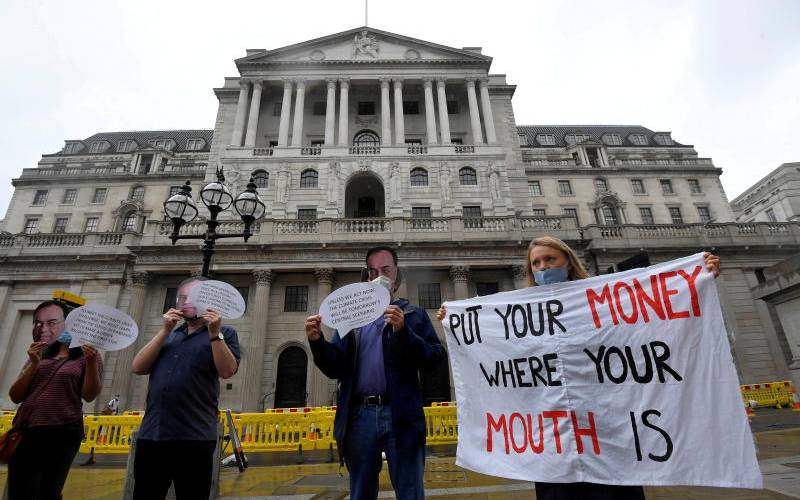
Environmental activists wear face masks depicting the governor of the Bank of England, Andrew Bailey, during a protest to encourage a green economy, outside of the Bank of England in the City of London, Britain, August 6, 2020. [Reuters]
As curtains fall on the 26th United Nations Framework Convention on Climate Conference of the Parties (COP 26), our generation is being reminded of the threats we face due to our activities. I guess some in the audience may be wondering where this is headed since this column articulates matters of economics.